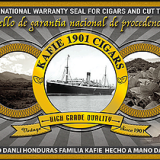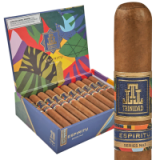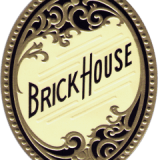Aging cigars is a process that has been practiced by cigar enthusiasts for many years. This practice helps to enhance the flavor and aroma of the tobacco, while also providing it with a smoother draw. Aging cigars is not something that happens overnight; it takes time and patience in order to achieve its fullest potential. There are several different methods for aging cigars, each with their own set of advantages and disadvantages.
Contents:
The first step in aging cigars is choosing the right type of cigar for the job. Different types of tobacco have different flavors and aromas, so it’s important to select one that will best suit your taste preferences. Certain tobaccos require specific humidity levels during storage in order to properly age them over time. Knowing what type of cigar you’re dealing with beforehand can help make sure you get the most out of your aging process.
Once you’ve selected a suitable type of cigar, you’ll need to store it correctly in order to promote proper aging conditions. An ideal storage environment should be dark, cool and humid – usually between 65-70% relative humidity (RH). It’s also important to keep an eye on temperature fluctuations as they can cause significant damage if they become too extreme over long periods of time. A quality humidor or other airtight container can help maintain stable conditions throughout your aging process.
There are various techniques available for monitoring the progress of your aged cigars including appearance checks and tasting sessions at regular intervals throughout the year(s). Keeping records along this journey will enable you track changes within individual sticks as well as overall trends across batches or collections – allowing both novice and experienced smokers alike to better understand how their chosen tobaccos mature over time when given optimal care and attention.
How to Tell if a Cigar is Aging Well
When it comes to aging cigars, one of the most important things you can do is make sure that they are being aged properly. If a cigar isn’t aged correctly, it won’t reach its full potential and won’t provide the same level of enjoyment that an aged cigar would offer. Fortunately, there are a few ways to tell if your cigar is aging well.
The first thing to look for is the condition of the wrapper leaf. As a cigar ages, its wrapper should become more supple and velvety in texture. You should also be able to see some veins in the wrapper as well as oils on its surface. These are all signs that your cigar is maturing nicely and will be ready to smoke soon.
Another way to tell if your cigar is aging well is by looking at how it smokes when lit up. Aged cigars will usually produce thick plumes of smoke with plenty of flavor complexity and depth compared to younger cigars which may have little or no smoke production due to their lack of maturity. The taste profile of an aged cigar should also be significantly different from that of a young one; you should notice much more complexity in terms of flavor nuances when smoking an aged stick versus what you’d get from a fresh one off the shelf.
Try smelling your cigars every once in awhile while they’re aging – this will help you determine whether or not they are getting better with age or not. If you detect any musty odors coming from them then chances are they aren’t developing properly and might need extra time before they’re ready for consumption – otherwise, if everything smells pleasant then you know your cigars are aging successfully!
Finding the Perfect Storage Conditions
Finding the ideal storage conditions for aging cigars is essential in preserving their flavor. Humidity and temperature are two key factors to consider when determining where to store your cigars. When looking for a place to store your smokes, try and find somewhere that is cool and dark with good air circulation. A room temperature of 65-70 degrees Fahrenheit with a humidity level of 70-72% will help ensure that your cigar remains in peak condition over time.
Humidors are an excellent option if you’re serious about storing cigars properly. These cases come in various sizes, materials, and price points so there’s something out there for everyone’s budget. They work by using a combination of Spanish cedar wood lining and humidity packs or beads to regulate the environment inside the case while protecting against fluctuations in external temperatures or moisture levels outside it. Cigars kept in humidors can remain fresh up to five years if maintained correctly.
If you don’t have access to a humidor, other options such as plastic food containers or even resealable bags can be used instead – although these won’t provide quite the same protection as their more expensive counterparts do. Be sure to include some form of desiccant pouch inside whatever container you use; this will help keep any unwanted moisture from ruining your precious stogies.
Benefits of Aging Cigars
Cigar aficionados swear by the power of aging cigars, and for good reason. Aged cigars provide an enhanced smoking experience that cannot be replicated with fresh smokes. One major benefit of aged cigars is their smoother smoke. As the cigar ages, its harshness mellows out due to the breakdown of certain chemical compounds in the tobacco leaf. This produces a milder flavor profile and more enjoyable draw with every puff.
Another advantage of aged cigars is their improved construction. Aging allows time for oils and sugars to migrate throughout the cigar’s interior, which improves burn consistency and makes it easier to cut properly without compromising taste or texture. Moreover, as moisture evaporates over time, so does excess weight; this creates a more comfortable fit in your hand while also providing a better seal when you light up.
Aging cigars provides many opportunities for experimentation. Cigar enthusiasts can compare different blends from different years to observe how age affects their composition over time – creating entirely new flavors in some cases. Certain types of tobaccos will produce markedly different results when stored at different temperatures and humidities; this can open up exciting possibilities for exploring unique aromas and tastes not found elsewhere on the market today.
Prolonging Freshness with Proper Handling
Proper handling is essential to prolonging the freshness of cigars. It is important to understand the different steps involved in aging cigars properly so that they maintain their flavor and aroma over time.
Humidity control is key when it comes to preserving a cigar’s freshness for an extended period of time. The ideal humidity level for storing cigars should be around 70%. A quality humidor can help you maintain this level of humidity, while also protecting your cigars from UV rays and other elements that could cause them to dry out or become stale. Keep your humidor away from direct sunlight as well as areas with high levels of heat or cold air flow.
When it comes to moving cigars, transport them carefully in order to avoid damaging them by putting too much pressure on them or exposing them to temperature fluctuations. If you’re traveling with a cigar, make sure it is kept at room temperature and protected against any sudden changes in temperature or humidity levels during transit. When not smoking the cigar right away, store it in an airtight container until you’re ready to enjoy it again. This will help preserve its flavor and aroma while still allowing some air circulation which helps prevent mold growth on the wrapper leaves.
Uncovering Subtle Notes Through Time
Aging cigars has become a popular pastime among cigar aficionados. Not only does the process enhance flavor and aroma, but it can also reveal subtleties that are otherwise hidden in young cigars. It is therefore important to understand how aging works and what kind of changes you can expect over time.
When storing cigars, one should keep them in an environment where humidity and temperature remain constant. This will ensure that the stogies age evenly and gradually, allowing for the development of flavors without sacrificing freshness or complexity. When properly stored, cigars will develop smoother smoke with notes of woodiness, sweetness and creaminess becoming more pronounced as they age. Older blends tend to have less bitterness than their younger counterparts due to the mellowing out of harsher tannins from the tobacco leaves during this period.
The best way to uncover these subtle notes is through blind tasting – smoking several different ages side by side and comparing their characteristics without any prior knowledge about them. Through this method you can identify distinct differences between various vintages of your favorite brands; noting how certain flavors evolve over time and change character as the blend matures in your humidor. Blind tasting allows for an objective comparison between old-aged cigars versus freshly rolled ones so you can better appreciate what aging brings to each smoke’s flavor profile.
The Art of Patience
Patience is an art form when it comes to aging cigars. The longer a cigar has been aged, the more complex and nuanced its flavors will become. Aging your cigars can bring out some of the subtle nuances in taste that are not present when smoking a fresh cigar. Cigar aficionados often have patience as one of their greatest virtues; they understand that time is necessary for the aging process to do its work and fully develop the flavor profile of a cigar.
It takes time for tobacco leaves to reach maturity, meaning that any cigar you purchase from your local tobacconist should already be well on its way to developing into something special – but if you want it to reach its full potential, then allowing extra time for maturation is key. Different types of cigars require different lengths of aging in order to achieve peak performance; some may need just two weeks while others may take months or even years. It’s important to read up on which type of cigars need what amount of aging before attempting this yourself so you can be sure you get the most out of your experience.
The environment where you store your cigars also plays an integral role in how they age over time. You want a place with low humidity (around 65-70%) and consistent temperature (around 70 degrees Fahrenheit). This means avoiding places like bathrooms or kitchens, which tend to have higher levels of moisture due to steam from showers and cooking respectively. If possible, try finding somewhere with natural air flow such as a cellar or garage; this will help circulate air around your precious smokes and keep them at optimal conditions for maturing gracefully over time.
Aroma Intensification Over Time
Cigars are a great indulgence for many smokers, but the true pleasure of a cigar comes from its aroma. As cigars age, their aromas become more complex and intense due to oxidation, which is caused by natural chemical reactions that occur as the tobacco in the cigar ages over time. With aging, compounds found in tobacco leaves break down into simpler forms that give off strong scents and flavors. The result is an intensified aroma with more layers of flavor than when it was fresh.
To ensure that your cigars age well, you should store them at temperatures between 65°F-70°F and maintain a relative humidity of 70%. This helps create an environment where the aging process can take place naturally without any risk to the cigars’ quality or taste. To further enhance the aging process, some people choose to use humidors – special containers designed specifically for storing cigars at optimal temperature and humidity levels – so that their collection matures even faster.
The key to getting the most out of your aged cigars is patience: allowing them to rest undisturbed for long periods of time allows all those flavorful compounds within them to reach their full potential before being enjoyed. Taking these steps will guarantee you get maximum enjoyment out of your beloved stogies.
Taking Your Smoke to New Levels
Aging cigars is a process that can take your smoking experience to new heights. It’s the best way to ensure that you get the most out of each cigar and enhance its flavor, body, and aroma. Cigars are made from tobacco leaves that have been dried and cured for a period of time, which allows them to develop their unique characteristics. Aging takes this process even further by allowing the flavors in the leaf to marry together more fully over time. This is why many connoisseurs prefer aging their cigars before they smoke them – it brings out a richness and complexity that wouldn’t otherwise be present.
The first step in aging your cigars is storing them properly. You’ll want to find a cool, dry place away from direct sunlight or any other sources of heat or humidity; an ideal temperature range would be between 60-70°F with around 65% relative humidity (RH). You can use specialized humidors designed specifically for storing cigars or create your own climate-controlled environment with airtight containers filled with dampened Spanish cedar chips or crystals. Once you’ve found an appropriate location, you should make sure to check on your collection regularly – at least once every few weeks – as temperatures may fluctuate due to changes in weather conditions outside or within your home/office space.
Another important factor when it comes to aging cigars is allowing them enough time for the flavors inside each leaf blend together and become smoother over time; this could take anywhere from several months up to two years depending on what type of cigar you’re trying to age and how long it was aged prior to purchase. Keep in mind that some premium brands may require longer periods of maturation than others so don’t rush the process if you want optimal results. Make sure not expose your precious smokes too much oxygen during storage as this could lead oxidation which will ruin any potential flavor improvements achieved through aging.











